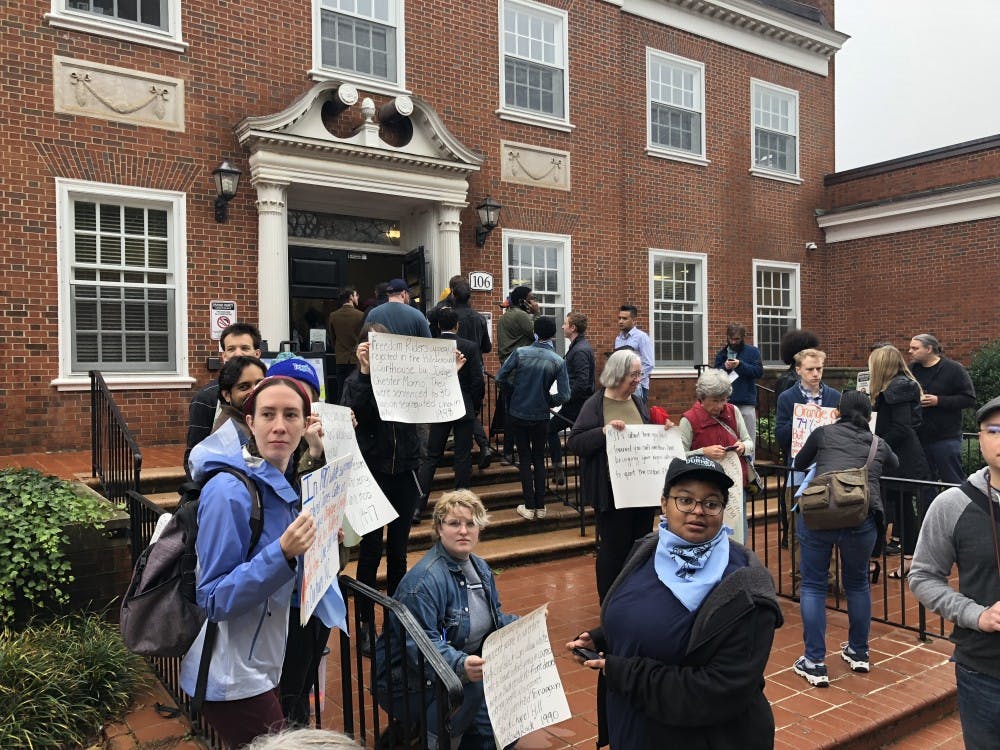For a second time, the cases of 20 anti-Silent Sam demonstrators have been continued — this time until December.
After only 17 minutes in the Orange County Courthouse, the demonstrators’ attorney, Tom Cadwallader, told the demonstrators charged that they will either be given future trial dates or enter a plea on Dec. 10.
Cadwallader said there was a delay because film taken of Silent Sam’s removal still needs to be reviewed, and his schedule does not match up with that of Scott Holmes, another lawyer working with anti-Silent Sam demonstrators and a professor at the North Carolina Central University School of Law.
“We’ve got 130 gigabytes of film we have to look at, so that’s part of why this is dragging out,” he said. “The other part is that Scott and my's schedule is such that we couldn’t get together before the Dec. 10 date.”
Raul Jimenez, an anti-Silent Sam demonstrator who has been charged with public disturbance and defacing, writing on, marking or injuring a public statue or monument, said supporters of the anti-Silent Sam demonstrators will continue to show up at court despite the continuance.
“Every other time we’re here, we get a continuance, which is what happened,” he said. “We have new court dates, we might have a trial, we don’t know. But that’s how it is; that’s how they want to drag us down here and tell us to come back again. That’s how the system works.”
Before the court proceedings, about 20 anti-Silent Sam demonstrators stood on the steps of the courthouse holding up signs in an art installation that highlighted racial disparities in the handling of previous Orange County cases, like that of the Freedom Riders in the 1940s. In 1947, four riders were arrested in Chapel Hill and later sentenced to segregated chain gangs.
Anti-Silent Sam demonstrator and UNC Ph.D. student Maya Little, said the point of the art installation was to highlight the racist roots of the Orange County Courthouse.
“This courthouse has a proven record of being unfair to anti-racist activists and persecuting Black people and brown people and being a general source of pain and anguish in this community rather than a source of justice,” she said.




